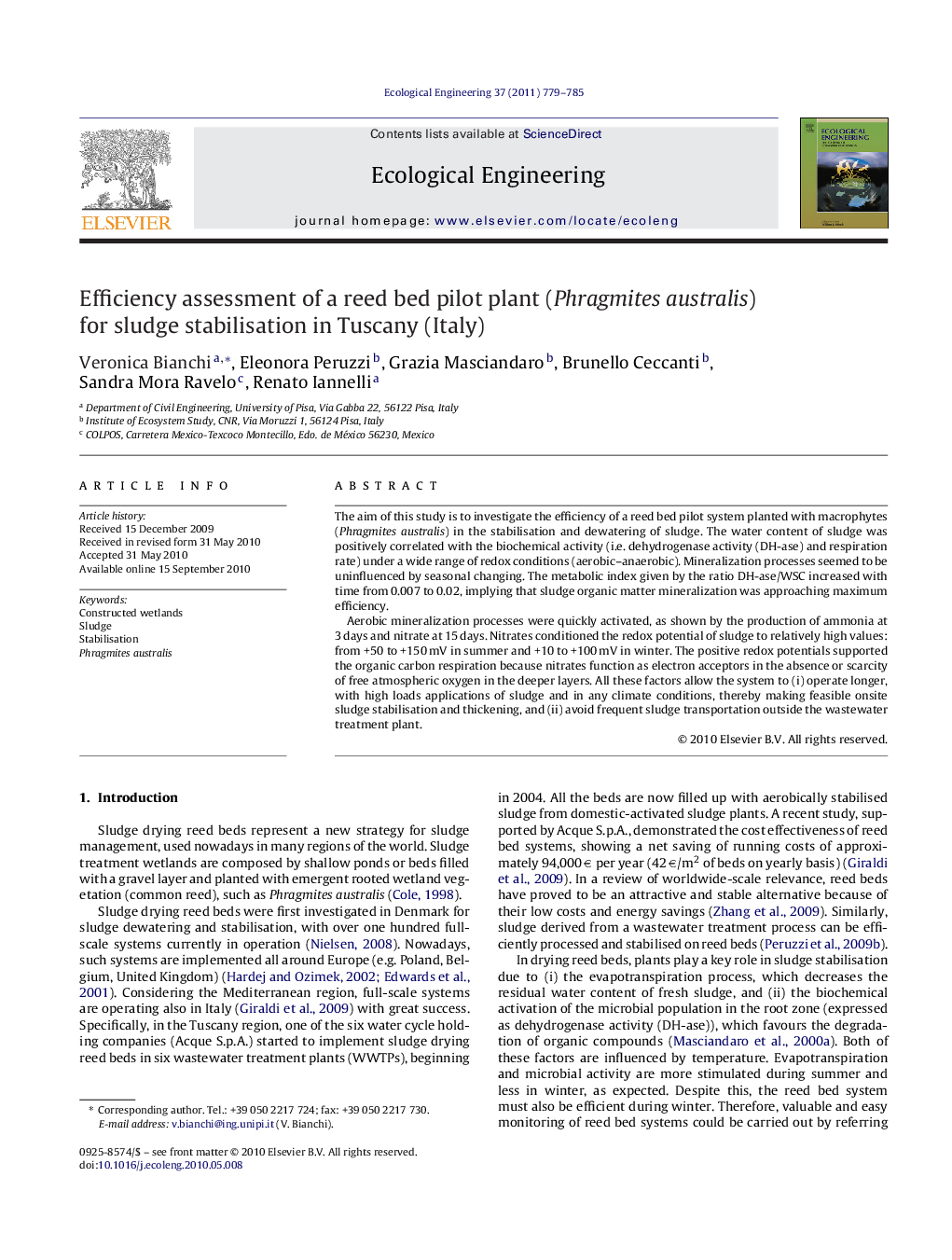| Article ID | Journal | Published Year | Pages | File Type |
|---|---|---|---|---|
| 4390196 | Ecological Engineering | 2011 | 7 Pages |
‘AbstractThe aim of this study is to investigate the efficiency of a reed bed pilot system planted with macrophytes (Phragmites australis) in the stabilisation and dewatering of sludge. The water content of sludge was positively correlated with the biochemical activity (i.e. dehydrogenase activity (DH-ase) and respiration rate) under a wide range of redox conditions (aerobic–anaerobic). Mineralization processes seemed to be uninfluenced by seasonal changing. The metabolic index given by the ratio DH-ase/WSC increased with time from 0.007 to 0.02, implying that sludge organic matter mineralization was approaching maximum efficiency.Aerobic mineralization processes were quickly activated, as shown by the production of ammonia at 3 days and nitrate at 15 days. Nitrates conditioned the redox potential of sludge to relatively high values: from +50 to +150 mV in summer and +10 to +100 mV in winter. The positive redox potentials supported the organic carbon respiration because nitrates function as electron acceptors in the absence or scarcity of free atmospheric oxygen in the deeper layers. All these factors allow the system to (i) operate longer, with high loads applications of sludge and in any climate conditions, thereby making feasible onsite sludge stabilisation and thickening, and (ii) avoid frequent sludge transportation outside the wastewater treatment plant.
